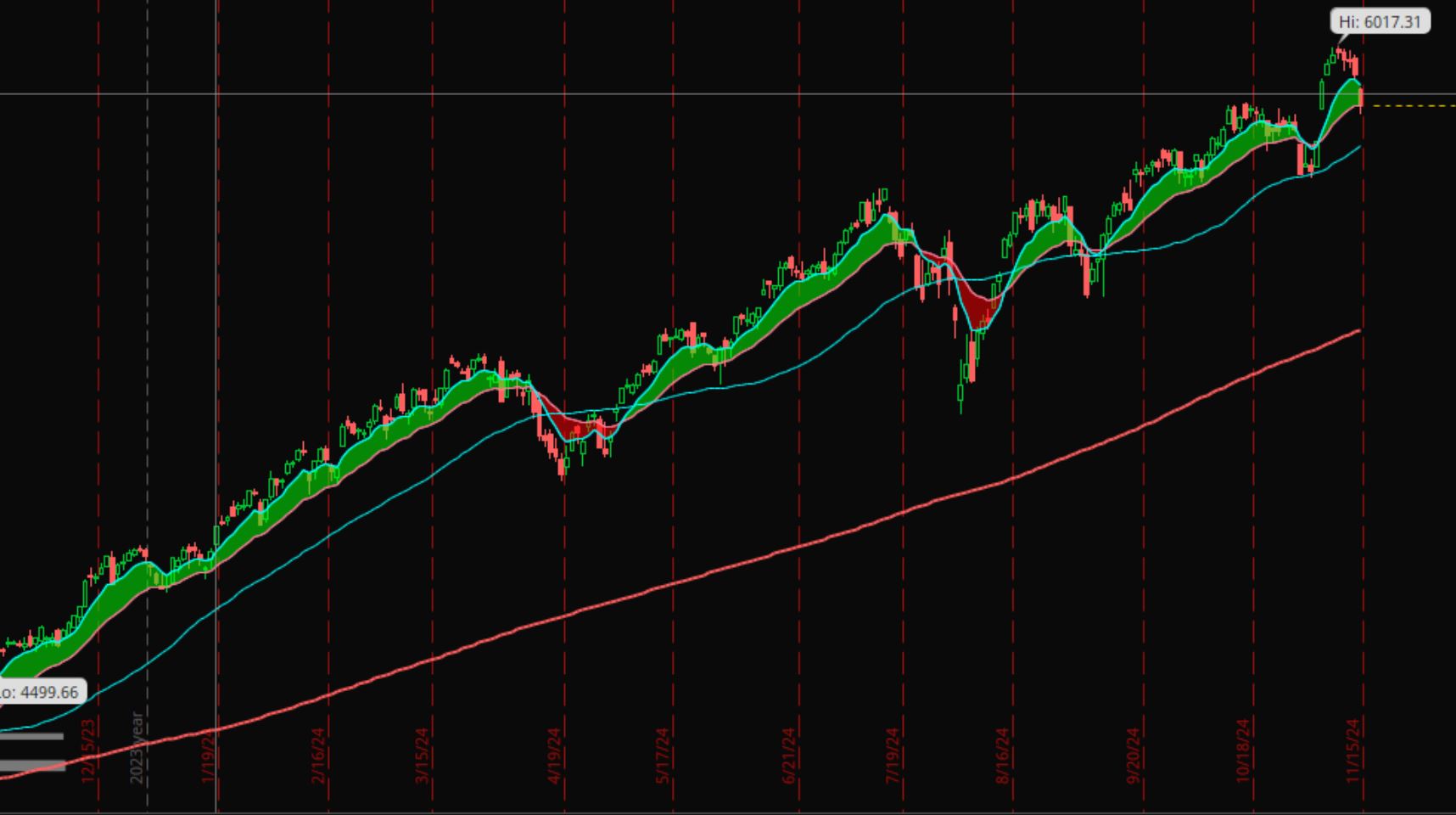Understanding Today’s Market Drop
March 28, 2025 – The market took a hit today, with indices showing a significant drop, leaving many investors wondering why. While it can be tempting to react to daily market fluctuations, it’s important to remember one fundamental truth: the stock market is not the economy. Today’s downturn is just one chapter in the market’s ongoing story, and it shouldn’t shake your long-term strategy.
The Personal Consumption Expenditures (PCE) Price Index report released today indicates that inflation remains a concern, with the core PCE index rising 2.8% year-over-year in February. This measure, which excludes volatile food and energy prices, surpassed many economists’ expectations. Consumer spending showed a modest increase of 0.4% in February, driven by durable goods purchases. However, when adjusted for inflation, the real spending growth was only 0.1%.
Financial markets reacted negatively to the report, with the Dow Jones falling nearly 700 points, the S&P 500 decreasing by 2%, and the Nasdaq Composite declining by 2.7% due to concerns about persistent inflation and the impact of recent tariffs. Additionally, consumer confidence has declined, with the University of Michigan’s sentiment index dropping to 57.0 in March from 64.7 in February, marking the lowest level in two years. These developments suggest that the economy is facing stagflation—a combination of slow growth and rising inflation—which may influence the Federal Reserve’s monetary policy decisions in the coming months.
The Market is Not the Economy
While the market and the economy are interconnected, they are not the same thing. The stock market is a reflection of investor sentiment and behavior—it’s essentially a marketplace where people buy and sell shares in companies based on their perceptions of the future.
The economy, on the other hand, is the larger system that includes production, consumption, and the exchange of goods and services. It’s driven by factors like consumer spending, business investment, government policies, and technological progress. While the stock market can sometimes serve as a leading indicator of economic conditions, it can also be volatile and influenced by factors unrelated to the economy.
In other words, a dip in the market today doesn’t necessarily mean the economy is in trouble. In fact, the market could be reflecting an overreaction to short-term news or fear. Meanwhile, the economy could still be moving along steadily, with businesses continuing to innovate and generate profits.
The Importance of Patience for Long-Term Investors
If you’re a long-term investor, it’s important to stay patient and calm during market fluctuations. While short-term market movements can be unnerving, the reality is that the market will recover—as it has done time and time again. Great companies, those with solid business models and strong fundamentals, will continue to grow over time, regardless of short-term setbacks.
Here’s why holding through thick and thin is the best strategy for long-term investors:
- The Market Goes Through Cycles
The stock market is cyclical. It goes up and down, sometimes dramatically, but over the long term, it has always trended upwards. Whether it’s a market correction, a temporary dip, or a larger bear market, these cycles are a natural part of investing. What matters most is not how the market performs in the short term, but how strong companies perform over the long term. - Great Companies Will Continue to Grow
When you invest in strong, high-quality companies, you’re investing in businesses with a proven ability to weather storms. These companies have strong leadership, competitive advantages, and sustainable growth. In times of uncertainty, they might see temporary setbacks, but over time, their performance will shine through, and they will deliver returns for patient investors. - You Don’t Need to Time the Market
One of the biggest mistakes investors can make is trying to time the market—buying low and selling high based on short-term fluctuations. It’s impossible to predict the precise movements of the market. By holding onto great companies and riding out the inevitable ups and downs, you avoid making costly mistakes and are more likely to see your investments grow over the long term.
Missing Just a Few of the Best Days Can Cost You
Many investors panic and sell during downturns, thinking they can jump back in when the market starts to recover. However, studies have shown that missing just the 10 best days of market performance over a long period can significantly hurt your returns. For example, if you missed the 10 best up days over the last 20 years, your returns could be cut in half. The market’s best days often follow the worst days, meaning trying to time the market can cost you dearly.
This is why it’s crucial to stay invested and not make rash decisions based on short-term market moves.
Why You Will Be Rewarded in the Long Run
Long-term investing is like planting a tree. At first, it may seem like little is happening, but over time, that tree grows stronger and taller, eventually providing significant rewards. Similarly, your investments in high-quality companies will gradually build wealth over time. The patience you develop now will pay off handsomely in the future.
So, even though today’s market drop might feel unsettling, don’t let it deter you. It’s a temporary setback, and in the grand scheme of things, it’s just a blip on the radar. Stay focused on your long-term strategy, and continue to hold great companies that you believe in. History has shown that markets eventually rise again, and so do the great companies within them.
Conclusion
The stock market’s performance today doesn’t define the future of your investments. It’s important to recognize that the market will go up and down, but if you’ve done the work to invest in solid, growth-oriented companies, the long-term outlook remains positive. Develop the patience to hold through the volatility, and you will likely be rewarded in the years to come.
Remember, the market is not the economy, and short-term fluctuations are normal. As a long-term investor, your goal is to stay focused on your strategy, trust in the fundamentals of your holdings, and allow time to work its magic. By doing so, you’ll be well-positioned to reap the benefits when the market recovers and moves higher once again. Keep holding, and the rewards will come.
Stay confident, stay patient, and keep investing wisely. The best is yet to come.












Leave a Reply